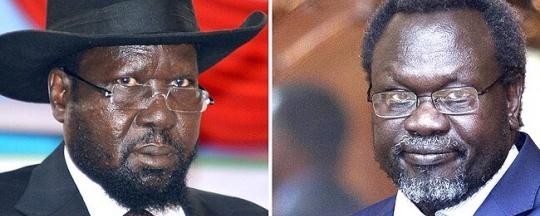South Sudanese youths from diverse backgrounds living in Uganda say they are disappointed by the indefinite adjournment of peace talks and many blamed Riek Machar and Salva Kiir, according to interviews conducted on Tuesday.
Rina Mohamed Yusuf, a South Sudanese student in Kampala, says she is worried about the failure of both warring groups to reach a final peace. She pointed out many people have died since the crisis erupted in Juba and many others now are at risk of death.
“This means for us war will continue and many people will be dying. And that means we are dying for nothing,” she adds.
She calls on President Salva Kiir and his former deputy Riek Machar to leave their interests behind adding that they should look for common good of the country rather than the tribes they come from.
She urges both principals to abandon power struggle and hand over the leadership for others who can take over from them.
Nelson Makoi, a South Sudanese student union speaker in Kampala, also criticizes the mediators for not giving the warring parties enough time to decide on something.
“You know, to bring peace you don’t give pressure to people so peace is something that you need to address the root cause – give people time to prepare and then you reach the agreement,” he says.
He says the warring parties need to sit down again to negotiate in order to reach common understanding between each other.
Kong Samuel Kong, a student at Cavendish University Uganda, says South Sudan’s leaders failed by missing the deadline in spite of having promised to make peace by that date. “It is sad to hear our leaders came out from peace talks without reaching consensus to end suffering of the common people on the ground.”
‘They don’t have kids in South Sudan’
He accuses the warring parties of sticking to their interests rather than the interest of the ordinary people. “It is because most of them are not having their kids, parents and relatives in South Sudan.”
“You know for them they don’t mind about some other people’s lives,” says Kong.
Ayuen Benjamin Mayuot says he expects the failure to reach a deal means more war is on the way for South Sudan.
“I think it will result again to another war if they did not agree… they will go back again to war because the rebel side are blaming and again the government is blaming them which means more suffering to people,” she adds.
Martin Manyal, a concerned South Sudanese in Kampala, has also blamed IGAD for not allowing enough time to work through issues. He says there is need for more time to be allocated for the warring parties in order to bring a lasting peace in the country.
Related:
‘Kiir and Machar have no sons in the war’ (24 Nov. 2014)




